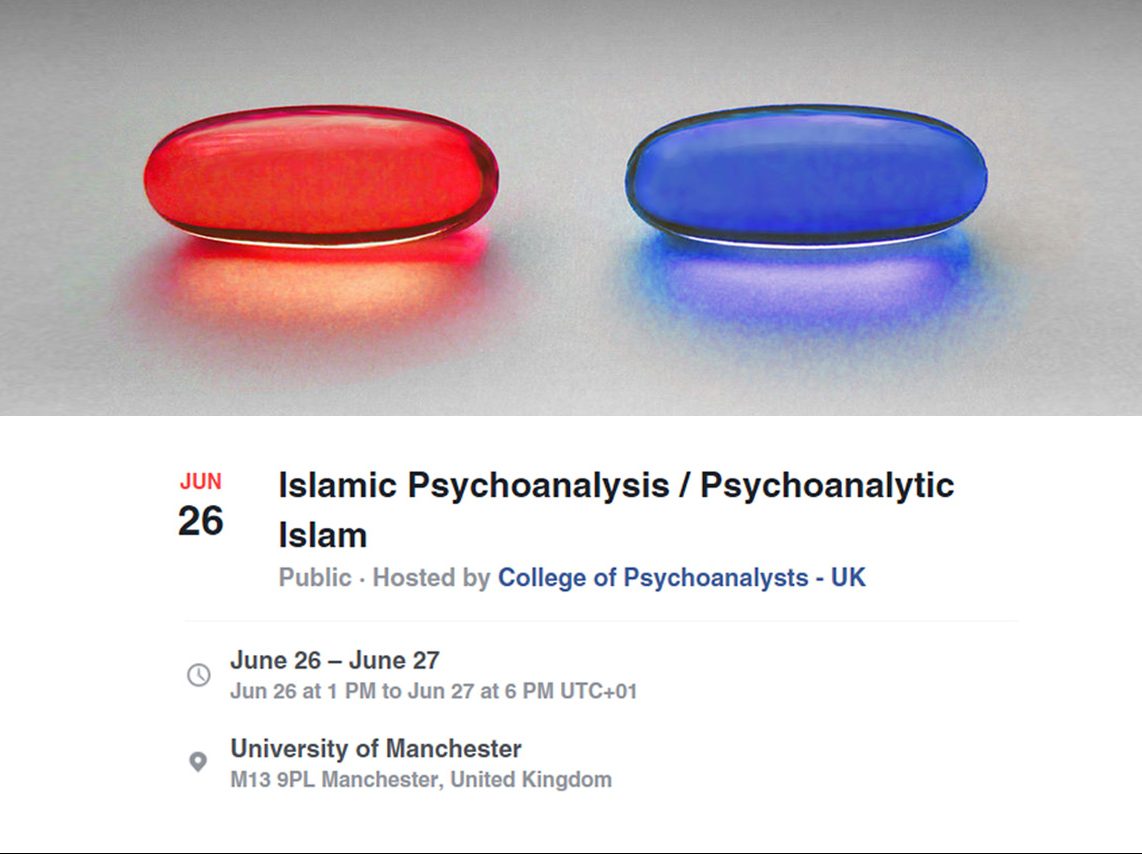Islamic Psychoanalysis / Psychoanalytic Islam

About The Event
Conference Report
June 26-27, 2017 | University of Manchester
This international conference organized by the College of Psychoanalysts – UK with the support of Manchester Psychoanalytic Matrix and CIDRAL University of Manchester promises to function as a site for dialogue. This conference was an opportunity to speak across the many conflicting traditions of work that comprise psychoanalysis, and of different interpretations of Islam and what it is to be a Muslim today.
The Keynote Speaker sessions were:
- Amal Treacher Kabesh (Associate Professor in the School of Sociology and Social Policy, University of Nottingham, author of Postcolonial Masculinities: Emotions, Histories and Ethics, Ashgate, 2013 and Egyptian Revolutions: Repetition, Conflict, Identification, Rowman and Littlefield, forthcoming) who spoke on ‘Itjihad: The necessity of thinking anew’ on Monday 26 June, 14.30-15.45;
- Gohar Homayounpour (Psychoanalyst, member of the International Psychoanalytic Association, training and supervising psychoanalyst of the Freudian Group of Tehran, lecturer at Shahid Beheshti University, author of Doing Psychoanalysis in Tehran, MIT Press, 2013) who spoke on ‘Islam … the new modern erotic’ on Tuesday 27 June, 11.15-12.30;
- Andrea Mura (Lecturer in Comparative Political Theory at Goldsmiths, University of London, author of The Symbolic Scenarios of Islamism, Routledge, 2016) who spoke on ‘Euro-Islam: Slanted Margins and Deflected Mirrors’ on Tuesday 27 June, 13.45-15.00.
This international conference brought together scholars – including in critical psychology, cultural studies and political theory – and practitioners of psychoanalytic and group-analytic approaches to psychotherapy and counselling. The relationship between the clinic and culture in the contemporary world was explored focusing on the challenge that Islam poses for psychoanalytic theory and practice, and the response of psychoanalysts to Islamic theory and practice.
The conference located this critical project in the context of a series of historical transformations in the development of Freudian and post-Freudian work, transformations that continue to underpin psychoanalytic debate. The first stage began with a question about the role of Judaism and Jewish history in the formation of Freud’s own work and dialogue with his followers and co-researchers in central Europe. The second continued with a question over the supposed Christianization of psychoanalysis after Freud and the secularization of the practice in the so-called Judeo-Christian tradition in the West. The third stage followed a time of the globalization and fragmentation of the psychoanalytic movement, resistance to colonization and post-colonial critique, and was one in which we might either conceive of the end of psychoanalysis or its renewal with Islam. In each case the crucial questions concerned the form of each rather than the content of their ideas about reality.
More information at: College of Psychoanalysts’ Website
Location
University of Manchester


We're always eager to hear from you.
If you’d like to learn more about us or have a general comments and suggestions about the site, email us at